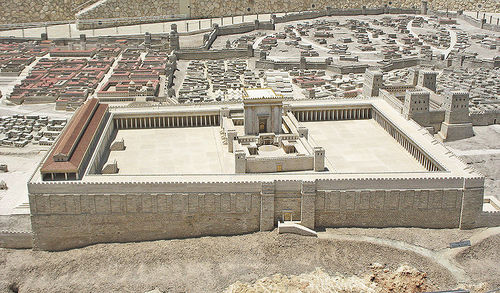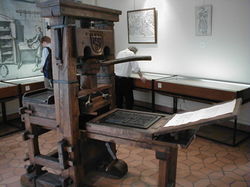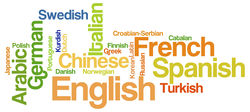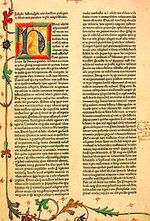Category:Second Temple Studies--1450s
History of Research (1450s) -- Notes
At the roots of the modern study of "Second Temple Judaism" was the “rediscovery” of Flavius Josephus, that made post-biblical Judaism historically significant, after centuries of oblivion, in the broader context of a renewed interest in Classical Studies.
But it was the movement of the Christian Cabalists and their philosophical search for universal wisdom, that gave theological meaning and dignity to post-biblical Jewish literature. Giovanni Pico della Mirandola identified the Jewish cabalistic books as the "seventy secret books" preserved by Ezra in addition to the Torah of Moses as claimed by the Fourth Book of Ezra. Pico viewed these book as a source of philosophical truth that predated the establishment of Judaism, Christianity and Islam and was also at the foundation of the philosophy of the Egyptians and the Greeks.
Pico was a leading member of the Florentine Platonic Academy, that was established by Cosimo de' Medici and Marsilio Ficino, and focused on the study and translation of the Corpus Hermeticum. In Pico's view, there was perfect continuity between Ezra, the wisdom of the Kabbalah and the primeval wisdom of Enoch and Hermes Trismegistos; see Enochic Studies.
@2014 Gabriele Boccaccini, University of Michigan
Pages in category "Second Temple Studies--1450s"
The following 13 pages are in this category, out of 13 total.
1
- (++) De antiquitate Judaica. De bello Judaico (1470 Schüssler), book (ed. princeps - Latin)
- ספר יוסיפון (Josippon / 1474-76 Conat), book (Hebrew / ed. princeps)
- De antiquitate Judaica. De bello Judaico (1475-76 Brandis), book
- De Bello Judaico (Jewish War / 1475 Sacchi, Pannartz), book
- Storie sacre (Sacred Narratives / 1475c Tornabuoni), poetry
- Josephi opera (1481 Squarciafico), book
- Conclusiones philosophicae, cabalisticae et theologicae (1486 Pico della Mirandola), book
- Oratio de hominis dignitate (Oration on the Dignity of Man / 1486 Pico della Mirandola), book (Latin)
- Josephus de la Bataille Judaique (Josephus's Jewish War / 1492), book
- De bello judaico (Jewish War / 1492 Palencia), book
- Guerra dei Giudei (1493), book








